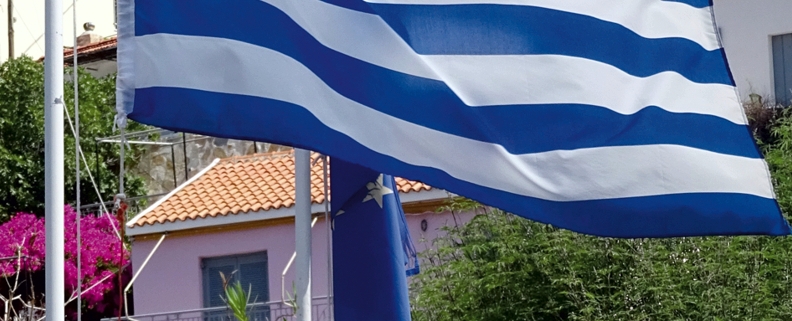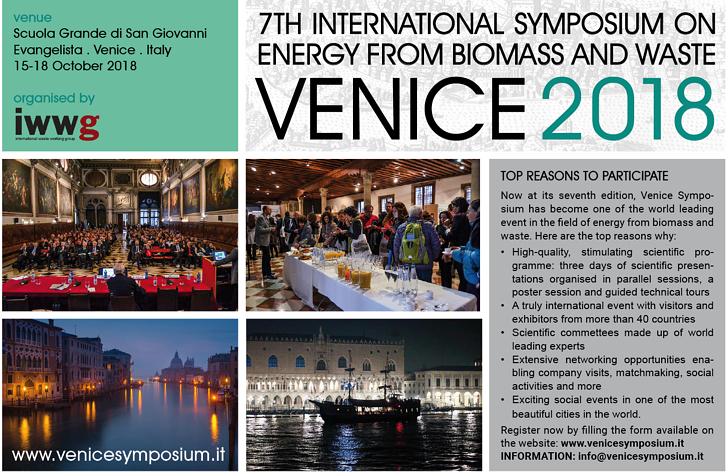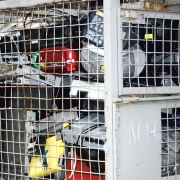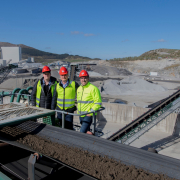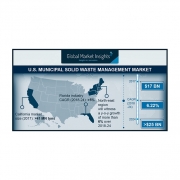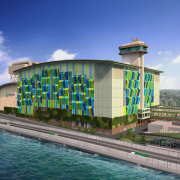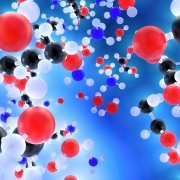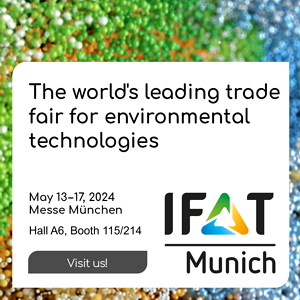Greece – A Late Developer in Recycling
“The country’s waste management situation is a major structural problem. Greece landfills the majority of its municipal waste (81 percent, compared to 31 percent for the EU-28 average), with only 16 percent being recycled (EU-28: 27 percent) and four percent composted (EU-28: 15 percent)”, the EU Commission stated in an Environmental Implementation Review on Greece in February 2017. Illegal landfilling, very low recycling rates and the management of hazardous waste were criticized most. Financing seemed also to be a significant issue, particularly for areas where EU funding is not available. But the tide has begun to change.
In 1997, Greece disposed of his waste by a number of 6,500 uncontrolled landfills. Even in May 2014, the EU commission found out that 70 illegal landfills were still in use and 223 had been closed but not remediated. Latest figures show 20 uncontrolled, still used and 46 closed, but not sanitary landfill sites and 21 necessarily further used deposits. According to Eurostat, Greece produced 5,362,000 tons of municipal waste in 2016, of which 5,277,000 tons were treated, 4,415,000 landfilled, 698,000 tons recycled, 27,000 tons incinerated including energy recovery and 135,000 tons composted and digested.
17 percent municipal waste recycling rate
The recycling quota of 13,2 percent in contrast to 83,6 percent landfilling rate has been complained by the EU Commission several times and costs the country a lot of money. For example, in December 2014 a penalty of 22 million Euro and 54,450 Euro for every day for not closing several landfills was imposed, followed by a ten million Euro fine and another 30,000 Euro per every day regarding the treatment of hazardous waste in September 2016. Regarding packaging waste, the Hellenic Recovery Recycling Corporation (HE.R.R.Co) represents 1,893 affiliated companies and collaborates with 297 local authorities. According to the corporation, 94 percent of the country’s population has been covered in 2016 by 157,000 Blue Bins, and more than 7,000 Blue Bells have been placed where citizens can deposit all waste packaging. This material was shipped by approx. 500 special vehicles given to the municipalities to 32 mechanical recycling sorting centers. The resulting 550,000 tons of materials were recycled via Herrco’s activities and achieved a 13 percent increase in packaging waste quantities processed in comparison to 2015. The European Statistic Agency Eurostat still announced a recycling rate of 17 percent for municipal waste in 2016.
22 recycling systems accredited
The National Waste Management Plan indicated 55 transfer stations (14 under construction), three mechanical and biological treatment plants and 35 mechanical recycling plants. But as nearly half of municipal waste in Greece consists of organics, the resulting recovered materials such as RDF and compost did not have a responding market and were in the most cases just disposed to landfill, according to the country report of Efstratios Kalogirou and Antonios Sakalis in 2016. In spite of that, 22 recycling systems are accredited for the collection and utilization of packaging, battery, accumulator, electronics, used oil, end-of-life vehicles as well as construction and demolition waste. Following the figures of Kalogirou and Sakalis for 2012, the recovery rates differed between batteries (35 percent), packaging waste (58 percent), metal scrap from ELV (71 percent) and WEEE (reuse/recycling by 88 percent).
First signs of a new economic beginning could be discovered in 2011 when the Invest in Greece Agency conducted a survey on the “maturity level” of waste management projects. As a result, 50 solid waste management projects were expected to be tendered and implemented. In fact, only two PPP projects were anticipated: an integrated waste management system in the prefecture of Thessalo-niki with a capacity of 400,000 tons per year – costs: 242 million Euro and additional 20 percent for heavy maintenance and insurance – and the same in the region of Western Macedonia with a capacity of 120,000 tons and finally 152,000 tons per year – costs: 116,4 million Euro.
Intermission by new Waste Management Plan
The first boost came in 2014. According to World Finance, four preferred bidders were announced in Western Macedonia, Peloponnese, Serres (Central Macedonia) and Ilia (Western Greece); eight tender procedures were in progress. The twelve projects were expected to have a value of two billion Euro, co-financed by EU funds, and to create 3,000 new construction and 2,500 new operational jobs. Temporarily the National Waste Management Plan 2015–2020 put an intermission to the investment plans and the tenders, as the NWMP achieved new targets and caused the tenders to revise their offer.
But in May 2017 an Integrated Waste Management System started in the Western Macedonia region; it became the first of its kind and the first PPP waste project in operation. Its total costs were now 49 million Euro – partly by European funding and private capital –, its separation facilities were able to recover eight types of recycling material, and in a short time, the system met or even exceeded the targets. Meanwhile, comparable projects in Serres and Epirus are being planned and signed. An Integrated Waste Management project worth 48 million Euro in Kozani (Northern Greece) entered a trial phase; the PPP enterprise with a capacity of approximately 120,000 tons per year will serve 12 municipalities. And the EU Partnership Programme provides 150 million Euro for two more projects in Attika.
RDF production rejected
Regarding the feasibility of the waste-to-energy technology, in 2011 the German magazine “Müll und Abfall” proposed their construction in all major cities operating with an annual capacity of 200,000 to 400,000 tons. For basic income of such plants, the magazine identified the gate fees as well as the produced electricity and the recovered metals of the bottom ash sold. Kalogirou and Sakalis judged it “the final solution of the MSW problem of the Region”. But the NWMP – probably fearing the public opinion – assessed the different thermal methods as of high environmental impact and rejected the production of RDF/SRF as a non-appropriate treatment method.
Responsibility for municipalities extended
On 29 November 2017, a new law (4496/2017) changed the conditions for packaging recycling. Hitherto, the Greece municipalities were responsible for the collection, transport and storage of waste, done by locally owned services or with the help of one of the 500 licensed firms. Now the municipalities are allowed to manage the recyclable material and to generate revenue by themselves. Although the separation of glass, paper, plastics and aluminum is obligate, this new intake will reduce the costs of the community and relieve the citizens partly from charges.
The related increase of recycling material will also force communities, citizens and waste treatment enterprises to collect respectively treat more waste. Or, as business development agency Germany Trade & Invest phrased: “The branch has good chances of expansion and a great backlog demand.”
Photo: pixabay
GR 2/2018

